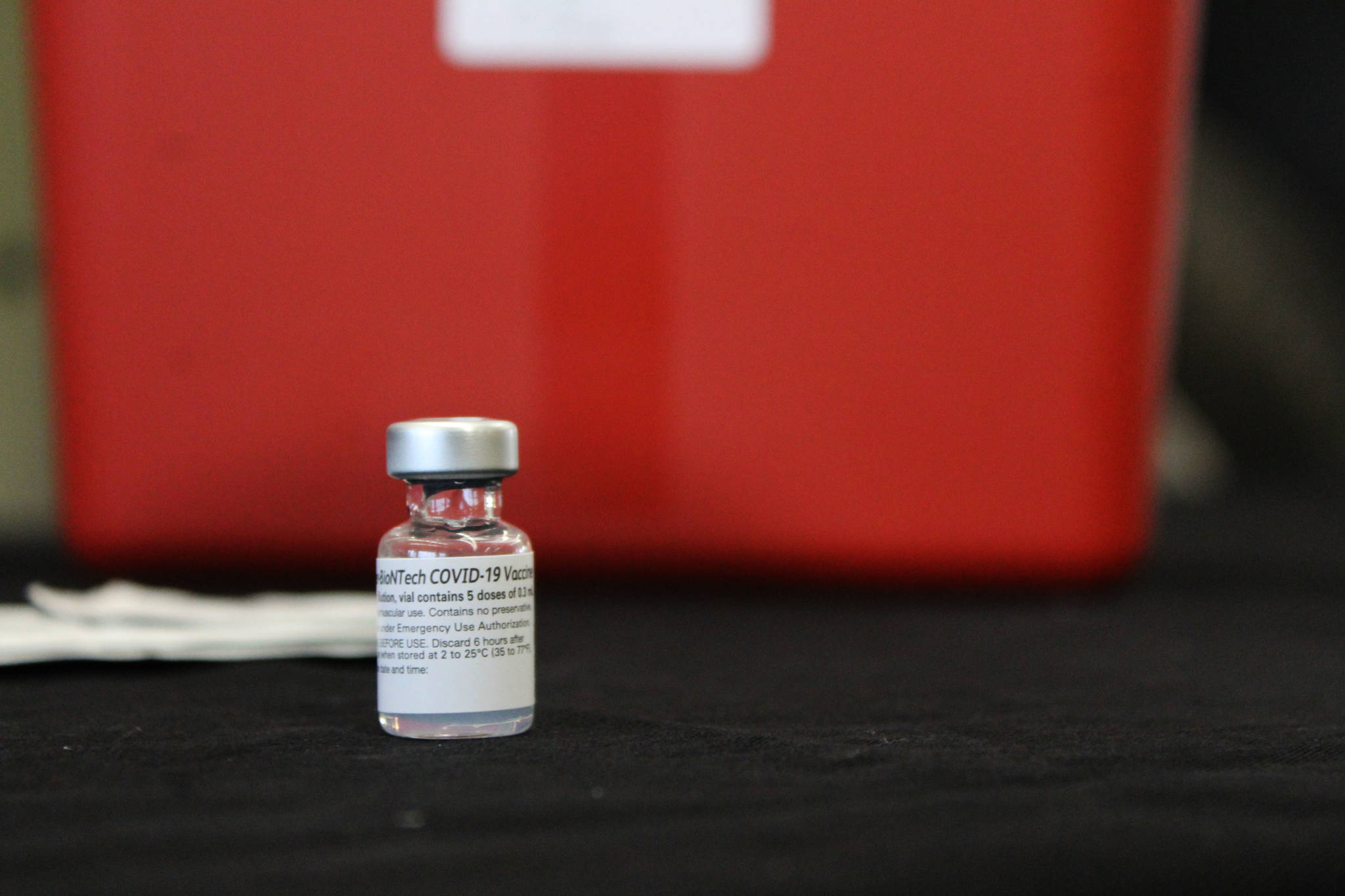Emerging data about mRNA COVID-19 vaccines show there have been no new safety concerns or above-baseline adverse events for pregnant women, Dr. Lisa Rabinowitz, a staff physician with the Alaska Department of Health and Social Services, said on Friday.
Data cited in the New England Journal of Medicine’s study only included the mRNA Pfizer-BioNTech and Moderna vaccines, classified as such because they are not a viral vector shot like the Johnson & Johnson/Janssen is, and because the Janssen hadn’t been approved yet.
Rabinowitz said out of about 94,000 vaccinated pregnant women who have submitted information tthough the V-safe program, the CDC has released data for around 35,000 of them and has not reported adverse safety concerns. Pregnant women were excluded from vaccine clinical trials early on, she added.
The Associated Press reported recently that the American Society for Reproductive Medicine endorsed vaccination, saying “everyone, including pregnant women and those seeking to become pregnant, should get a COVID-19 vaccine.”
“It’s encouraging,” Rabinowitz said on Friday, adding she thinks “it’s very valid and very understandable to have a lot of questions about vaccines and pregnancy.”
Another study Rabinowitz cited was one that found that protective antibodies as a result of vaccination have been shown to pass to infants through breast milk.
She said a newborn’s immune system is primarily dependent on its mother’s, which makes this discovery more encouraging. “It’s even more important that they’ll (infants) be protected against COVID,” Rabinowitz said on Friday.
Additionally, more health officials have analyzed data showing that pregnant women who contract COVID-19 is linked with an increased probability in morbidity and adverse events, resulting in high-risk pregnancies.
“That new study was somewhat jarring,” Rabinowitz said on Friday. “We just really want women to consider vaccination.”
For people who are worried about a change in fertility levels due to vaccination, Rabinowitz said they shouldn’t be.
“All the research that’s been done has shown that there’s no theoretical risk for fertility issues in men or women,” she said on Friday.
Rabinowitz said there are ongoing studies being done on pregnant women with all three vaccines, including the Johnson & Johnson/Janssen shot, which the FDA and CDC lifted the pause from on Friday.
Anyone seeking a session with health care professionals via Zoom can request one through their online jotform, or visit the DHSS’ COVID-19 ECHO project page for general information.
Note: A previous version of this story incorrectly stated the Janssen vaccine contains a live version of the coronavirus. According to the CDC, the Janssen is “a viral vector vaccine, meaning it uses a modified version of a different virus (the vector) to deliver important instructions to our cells.”
Reach reporter Camille Botello at camille.botello@peninsulaclarion.com.

